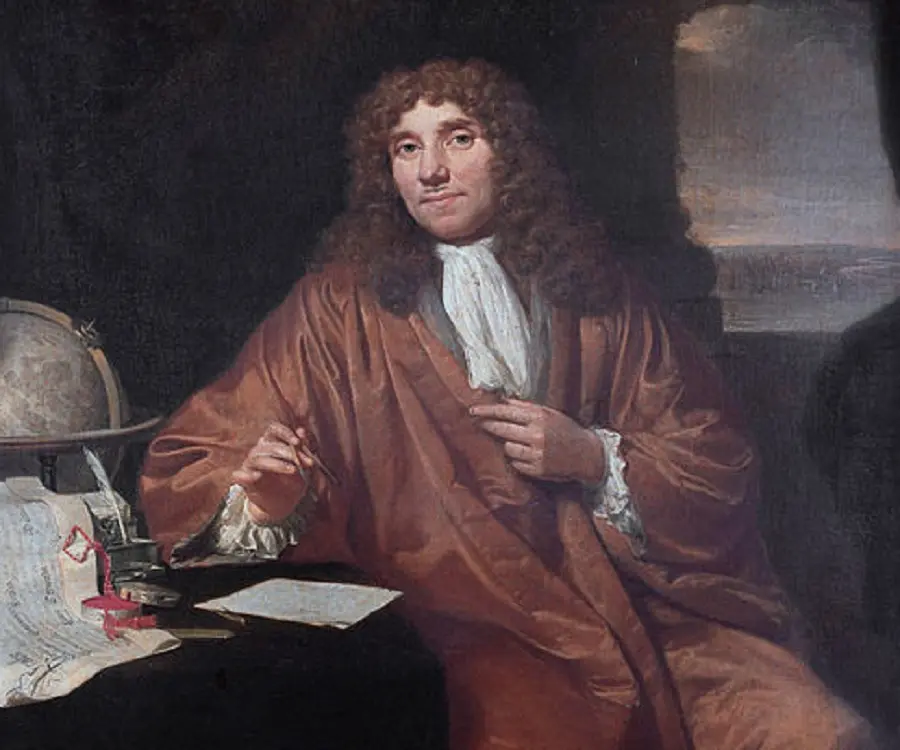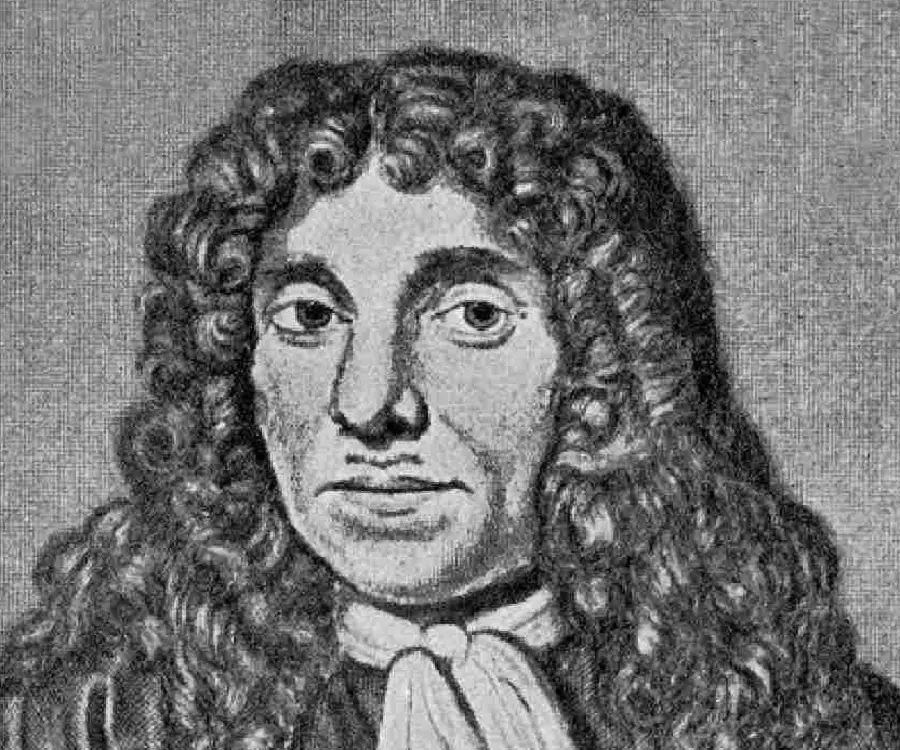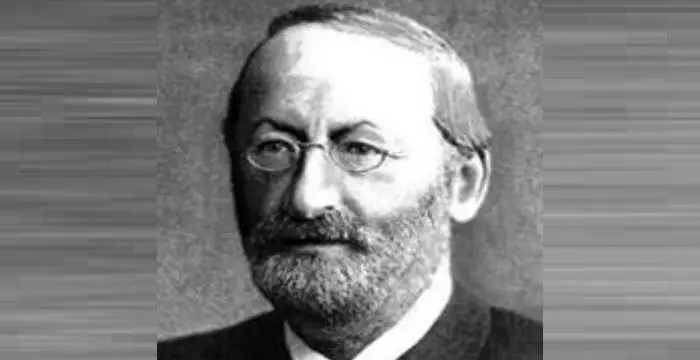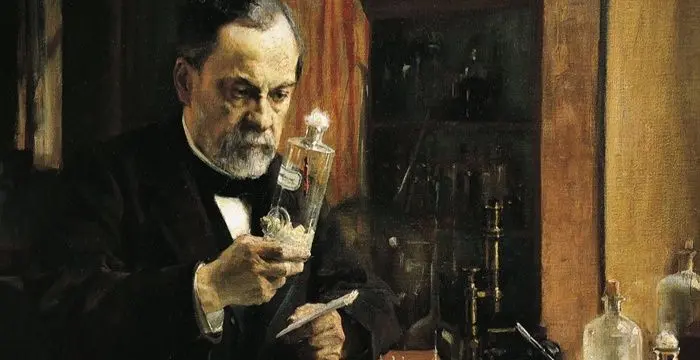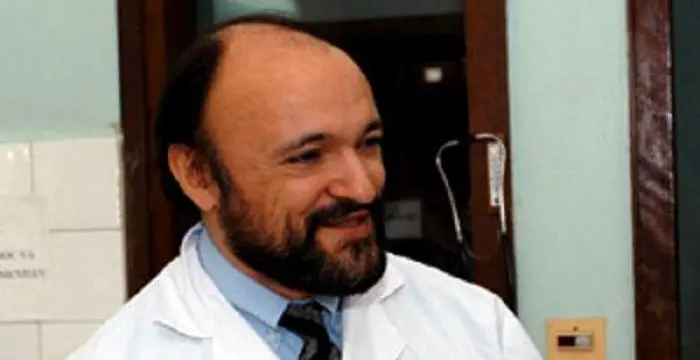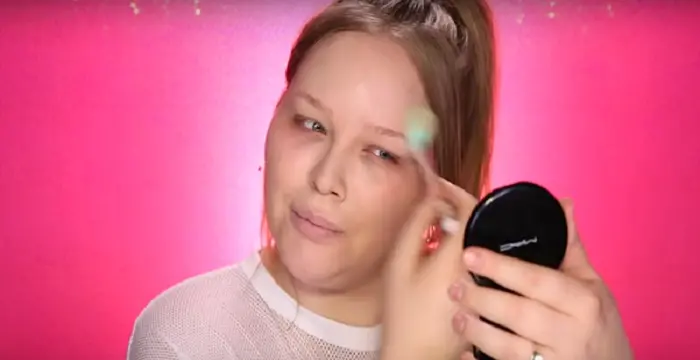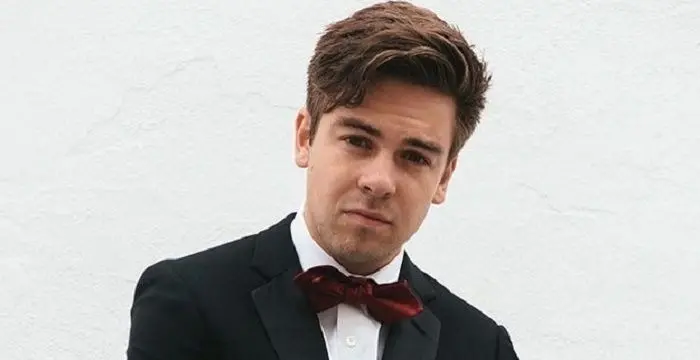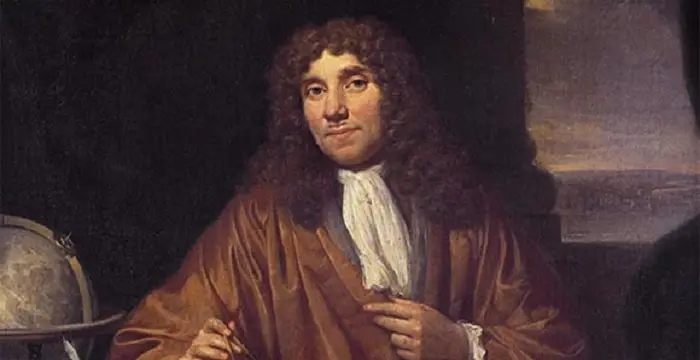
Antonie van Leeuwenhoek - Microbiologists, Timeline and Family
Antonie van Leeuwenhoek's Personal Details
Antonie van Leeuwenhoek is regarded as the ‘Father of Microbiology’ and is known for his pioneering works in relation to microorganisms
| Information | Detail |
|---|---|
| Birthday | October 24, 1632 |
| Died on | August 26, 1723 |
| Nationality | Dutch |
| Famous | Scientists, Microbiologists |
| Known as | Antonie Van Leeuwenhoek, Anton van Leeuwenhoek |
| Birth Place | Delft |
| Religion | Dutch Reformed Church |
| Gender | Male |
| Sun Sign | Scorpio |
| Born in | Delft |
| Famous as | Scientist |
| Died at Age | 90 |
// Famous Scientists
Juliane Koepcke
Juliane Koepcke is a German-Peruvian biologist, who was the lone survivor among the 92 passengers and crew of the ill-fated LANSA Flight 508 that crashed in the Peruvian rainforest on 24 December 1971. Know more about her life in this biography.
Henry Cavendish
Henry Cavendish was a theoretical chemist and physicist, renowned for discovery of hydrogen and calculation of the mass of earth. To know more about his childhood, profile, timeline and career read on
Konstantin Tsiolkovsky
Konstantin Tsiolkovsky was a Russian rocket scientist and a pioneer of astronautics. This biography provides detailed information about his childhood, family, personal life, career, achievements, etc.
Antonie van Leeuwenhoek's photo
Who is Antonie van Leeuwenhoek?
Antonie van Leeuwenhoek was a renowned scientist of the seventeenth century whose pioneering research works, laid the founding stone for emergence of microbiology as a stream. Hailed as the ‘Father of Microbiology’ this talented biologist chanced upon scientific research by mere coincidence. Antonie was a young entrepreneur, who established his own linen business and in search of a high quality magnifying lens, to be used for inspection of thread used in the linen, ended up devising a new technique of creating lens which can provide magnification up to 500 times. Upon encouragement from friend and physician Graaf, Antonie used the improved design of microscope to make many significant discoveries, which laid the foundation for evolution of microbiology. Beginning with identifying the first bacteria to describing the structure of RBC’s to the detailed study of deadly disease he suffered from; this eminent scientist contributed to scientific advancement even in his death. As more of his works began to get published his repertoire increased exponentially; he was visited by many eminent personalities throughout his lifetime which include the likes of Russian Tsar Peter the Great, German philosopher Gottfried Wilhelm Leibniz and Prince William III of England. Though this expert lens man shared his findings with the public, he preferred to work alone and kept the technique of making high precision microscope a closely guarded secret until his death. Read on to know more about his works and achievements
// Famous Microbiologists
Ferdinand Cohn
Ferdinand Cohn was a German biologist who is considered as the father of bacteriology and microbiology. Check out this biography to know about his childhood, life, achievements, works & timeline.
Louis Pasteur
Louis Pasteur was a French chemist and microbiologist who developed the first vaccines for rabies and anthrax. This biography of Louis Pasteur provides detailed information about his childhood, life, achievements, works & timeline.
Carlo Urbani
Italian epidemiologist Carlo Urbani was the first person who identified SARS as a highly contagious disease. Find out more about his life in this biography.
Childhood & Early Life
On October 24, 1632, in the Delft city of Netherlands, this famous microbiologist was born to parents Philips Antonysz van Leeuwenhoek and Margaretha.
Antonie and his four elder siblings lost their father at quite an early age and their mother remarried after Philips’ demise. The young lad went to school for a short while in Leyden but then had to move to his uncle’s place in Benthuizen.
At the tender age of sixteen Leeuwenhoek was engaged in a draper’s shop in Amsrterdam where he learnt the ropes of the trade. Eventually he returned to his native city of Delft in the mid-1650s and went on to establish himself as a fabric merchant.
Career
As the popularity of his linen store increased so did Antonie’s status in the society. He decided to utilize his new found fame to participate in the municipal politics. In 1660, he was granted the title of chamberlain and in this capacity he was in charge of managing the Delft sheriffs' assembly chamber. Later he would hold the positions of surveyor and wine gauger.
Leeuwenhoek used magnifying glasses for inspecting the quality of thread in his draper linen but he was not satisfied with the magnification provided by the available lenses. Thus he started making his own lenses and with time and expertise he devised microscopes that are believed to provide magnification of up to 500 times.
Armed with these powerful magnifying devices, he started recording his observations of minute creatures such as molds and lice. His friend Reinier de Graaf, who was a physician, encouraged Antonie to pursue his study of minute organisms and even helped establish a correspondence between the Royal Society in London and Leeuwenhoek.
Starting in 1673, Antonie began a series of communication with the Royal Society. His first published work included his study of lice, molds and bees.
In 1674, he used his hand made microscopes to observe miniscule living objects in various water bodies, human gut. He dubbed these minute living beings as “very little animalcules”, and estimated their sizes.
This skilled lens man accounted his studies on the male gametes, in 1677. He studied specimens of Spermatozoa in insects, humans and canines.
He then made important observations regarding the human eye, striated and non-striated muscle fibers and even studied insects and plant structures and asexual reproduction in aphids.
He then studied unicellular organisms, in particular yeast, and made significant observations regarding their composition in 1680. The same year he was granted a fellowship in the Royal Society of London.
’Philosophical Transactions of the Royal Society’, the journal of Royal Society published most of his works.The very first illustration of bacteria was depicted by Leeuwenhoek and was published in the 1683 edition of ‘Philosophical Transactions’.
The eminent microbiologist also studied plaque formation in the human oral cavity in 1683. It is believed that he made these observations using his own teeth and even his own wife and daughter.
In 1684, he studied the works of Marcello Malpighi’s demonstration of the blood capillaries. In continuation to Marcello’s works, Antonie studied the red blood cells and provided a fairly accurate description.
In 1702, while studying rotifers and nematodes he made the observation that microorganisms or the animalcules can be propagated by wind, water and air.
Leeuwenhoek continued his microscopic observations throughout his life and by the time of his death he had published more than 500 scientific letters in the Royal Society journal and other scientific publications. He even made observations of the rare and deadly muscular anomaly he was suffering from, which eventually led to his death.
Major Works
Though Leewenhoek is sometimes considered as inventor of microscope, it is not the truth. But it cannot be denied that his design of microscope and the observations which followed paved the way for many important discoveries and laid the foundation for emergence of microbiology.
Awards & Achievements
This eminent scientist is referred to as the ‘Father of Microbiology’ and the Royal Society of London honoured his contribution to the scientific world by granting him a fellowship.
Personal Life & Legacy
Antonie was married to Barbara de Mey in July 1654 and the couple were blessed with five children of whom only one survived.
Following the demise of Barbara, Antonie entered the wedlock with Cornelia Swalmius in 1671.
This pioneering scientist breathed his last on August 26, 1723 after battling a rare abnormality of the muscles in the midriff region. Since he made extensive observations regarding his illness, the condition has been named as the ‘Van Leeuwenhoek’s Disease’.
Antonie’s original specimens were archived by the Royal Society of London and in 1981 microscopist Brian J. Ford conducted a further study to expand Leeuwenhoek’s original works.
// Famous Dutch peoples
Nikkie De Jager
Check out all that you wanted to know about Nikkie De Jager, the famous Dutch Makeup artist; her birthday, her family and personal life, her boyfriends, fun trivia facts and more.
Romee Strijd
Romee Strijd is a Dutch model, also known as a 'Victoria's Secret Angel.' Check out this biography to know about her family, personal life, including her age, birthday, etc.
Nisrina Sbia
Nisrina Sbia is a social media influencer and model who rose to fame and has made it big on Instagram. Check out this biography to know about her birthday, childhood, family life, achievements and fun facts about her.
Antonie van Leeuwenhoek biography timelines
- // 24th Oct 1632On October 24, 1632, in the Delft city of Netherlands, this famous microbiologist was born to parents Philips Antonysz van Leeuwenhoek and Margaretha.
- // Jul 1654Antonie was married to Barbara de Mey in July 1654 and the couple were blessed with five children of whom only one survived.
- // 1660As the popularity of his linen store increased so did Antonie’s status in the society. He decided to utilize his new found fame to participate in the municipal politics. In 1660, he was granted the title of chamberlain and in this capacity he was in charge of managing the Delft sheriffs' assembly chamber. Later he would hold the positions of surveyor and wine gauger.
- // 1671Following the demise of Barbara, Antonie entered the wedlock with Cornelia Swalmius in 1671.
- // 1673Starting in 1673, Antonie began a series of communication with the Royal Society. His first published work included his study of lice, molds and bees.
- // 1674In 1674, he used his hand made microscopes to observe miniscule living objects in various water bodies, human gut. He dubbed these minute living beings as “very little animalcules”, and estimated their sizes.
- // 1677This skilled lens man accounted his studies on the male gametes, in 1677. He studied specimens of Spermatozoa in insects, humans and canines.
- // 1680He then studied unicellular organisms, in particular yeast, and made significant observations regarding their composition in 1680. The same year he was granted a fellowship in the Royal Society of London.
- // 1683’Philosophical Transactions of the Royal Society’, the journal of Royal Society published most of his works.The very first illustration of bacteria was depicted by Leeuwenhoek and was published in the 1683 edition of ‘Philosophical Transactions’.
- // 1683The eminent microbiologist also studied plaque formation in the human oral cavity in 1683. It is believed that he made these observations using his own teeth and even his own wife and daughter.
- // 1684In 1684, he studied the works of Marcello Malpighi’s demonstration of the blood capillaries. In continuation to Marcello’s works, Antonie studied the red blood cells and provided a fairly accurate description.
- // 1702In 1702, while studying rotifers and nematodes he made the observation that microorganisms or the animalcules can be propagated by wind, water and air.
- // 26th Aug 1723This pioneering scientist breathed his last on August 26, 1723 after battling a rare abnormality of the muscles in the midriff region. Since he made extensive observations regarding his illness, the condition has been named as the ‘Van Leeuwenhoek’s Disease’.
// Famous Scorpio Celebrities peoples
Teddy Zois
Teddy Zois is an American Musical.ly star and social media personality. Let’s have a look at his family and personal life including age, date of birth, net worth, and fun facts.
Kyla Cole
Kyla Cole is a Slovak glamour model and former television presenter. This biography profiles her childhood, life, modeling career, achievements and timeline.
Dominic Tracy
Dominic Tracy is an American YouTube Star. Let’s take a look at his family & personal life including age, date of birth, girlfriends, net worth, and fun facts.
Paige Mackenzie Hyland
Paige Mackenzie Hyland is an American dancer, fashion model and social media personality. Let’s take a look at her family & personal life including age, birthday, net worth, boyfriends, and fun facts.
Devin Gordon
All about American Pop singer and internet celebrity Devin Gordon, including his age, birthday, family life, girlfriends, net worth, and some fun facts.
Cody Ko
Cody Ko is a Canadian Vine sensation and YouTube personality. Check out this biography to know about his childhood, family life, achievements and fun facts about him.
Antonie van Leeuwenhoek's FAQ
What is Antonie van Leeuwenhoek birthday?
Antonie van Leeuwenhoek was born at 1632-10-24
When was Antonie van Leeuwenhoek died?
Antonie van Leeuwenhoek was died at 1723-08-26
Where was Antonie van Leeuwenhoek died?
Antonie van Leeuwenhoek was died in Delft
Which age was Antonie van Leeuwenhoek died?
Antonie van Leeuwenhoek was died at age 90
Where is Antonie van Leeuwenhoek's birth place?
Antonie van Leeuwenhoek was born in Delft
What is Antonie van Leeuwenhoek nationalities?
Antonie van Leeuwenhoek's nationalities is Dutch
What is Antonie van Leeuwenhoek's religion?
Antonie van Leeuwenhoek's religion is Dutch Reformed Church
What is Antonie van Leeuwenhoek's sun sign?
Antonie van Leeuwenhoek is Scorpio
How famous is Antonie van Leeuwenhoek?
Antonie van Leeuwenhoek is famouse as Scientist



